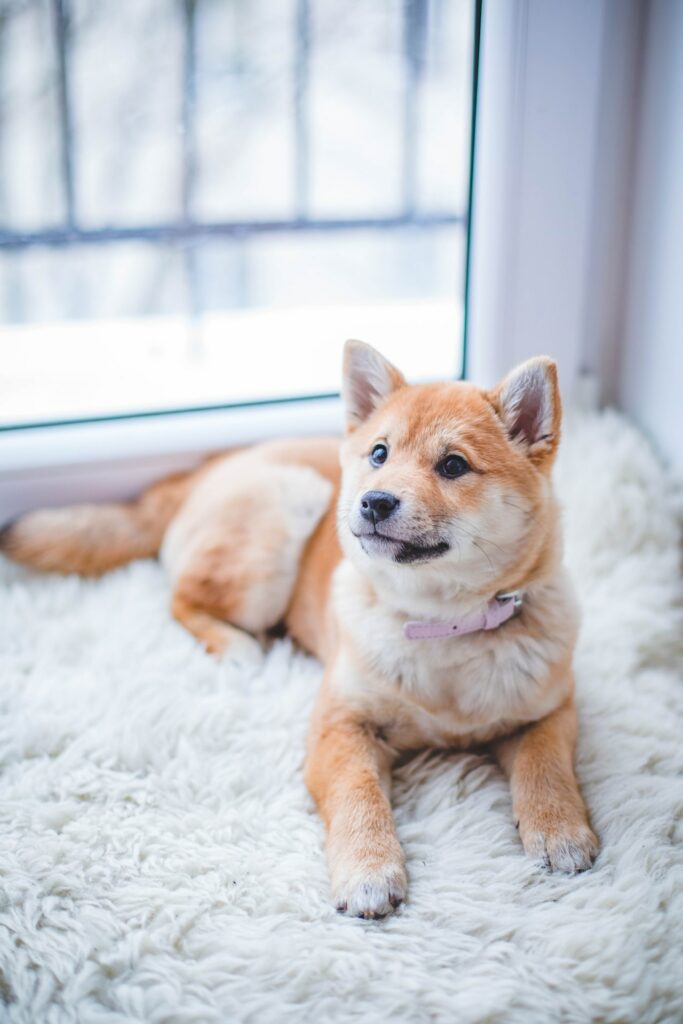Bad Breath in Dogs: Causes and Treatment In the UK
Do you have a beloved pup with doggy breath that seems to linger no matter what you do? If so, you’re in luck! This article will provide an in-depth overview of the causes, treatments and prevention of dog bad breath in the UK.
We’ll explore everything from diet and dental health to underlying medical conditions contributing to your pup’s stinky mouth. With this article, you’ll be armed with the knowledge you need to help keep your dog’s breath minty fresh. So if you’re looking for answers on how to give Fido a much-needed freshening up, read on!
What is Dog Bad Breath?
Dog bad breath is a common problem that many dog owners face. It can be unpleasant and embarrassing. A buildup of bacteria in the mouth or other areas of the body, such as the gastrointestinal tract, causes bad breath, such as the gastrointestinal tract. Poor dental hygiene, a diet lacking essential nutrients, or an underlying medical condition are some of the causes of Halitosis.
Causes of Dog Bad Breath
There are several potential causes for bad breath in dogs.
These include:
- Periodontal Disease: Poor oral hygiene can lead to plaque buildup and eventual gum disease, which causes bad breath.
- Respiratory Problems: Bacteria from the respiratory tract may build up in the mouth and cause halitosis.
- Kidney Disease: A buildup of toxins from kidney failure can often cause bad breath.
- Diabetes: Dogs with diabetes may have an increased sugar level in their saliva, leading to a sweet-smelling odour from their mouth.
- Liver Disease: An accumulation of toxins from liver failure can lead to bad breath.
- Systemic Infections: Certain infections, such as periodontal disease or gingivitis, can cause bad breath.
- Gastrointestinal Diseases: Diseases such as pancreatitis, ulcers or gastrointestinal cancer can cause bad breath due to bacterial overgrowth in the digestive tract.
- Diet: A diet lacking essential vitamins, minerals and nutrients may cause bad breath and poor dental health.
- Foreign Bodies Stuck In The Mouth Or Throat: Objects stuck between teeth or lodged deep into throat tissue can cause severe odours when they decompose in the mouth over time.
Ways to Treat Dog Bad Breath at Home
Fortunately, you can take a few simple steps at home to help reduce your dog’s bad breath and keep it smelling fresh! These include:
Practising Good Dental Hygiene
- Brush your pup’s teeth regularly with pet-safe toothpaste and toothbrush formulated for dogs; this helps remove plaque buildup before it turns into tartar which causes halitosis
- Give your pup dental treats like chew toys & bones, which help keep his teeth clean & strong; these toys should not be too hard, else they could injure his gums
- Make sure he has water available at all times; this helps remove food particles that may accumulate in his mouth, causing odours
Making Dietary Changes
- Incorporate lean proteins into your pup’s diet, like lean beef & chicken; this helps create enzymes that fight bacteria growth causing halitosis
- Add fruits & vegetables high in fibre, like apples & green beans; not only do they provide essential vitamins & minerals, but they also help promote good digestion, which keeps his stomach free from unpleasant odours
- Avoid processed foods high in sugar & salt, which give off an unappealing smell when digested
Any changes you make to your pup’s diet must be done gradually so as not to upset their stomachs or disrupt their digestive tracts; if necessary, consult with your vet about appropriate diets for your pup based on their age & size! Additionally, suppose you notice any other symptoms accompanying your pup’s halitosis, like excessive drooling or lethargy. In that case, you must immediately receive veterinary attention, as these could be signs of an underlying medical issue requiring professional care!
FAQs About Dog Bad Breath UK
Q: What are the most common causes of dog bad breath in the UK?
A: The most common causes of dog bad breath in the UK include periodontal disease, respiratory problems, kidney and liver diseases, systemic infections, gastrointestinal diseases, diet deficiencies and foreign bodies stuck in the mouth or throat.
Q: How can I treat my dog’s bad breath at home?
A: You can treat your dog’s bad breath at home by practising good dental hygiene. This includes regular brushing with a dog-specific toothpaste and toothbrush and giving your pup dental treats like chew toys & bones). You can also make dietary changes by incorporating lean proteins into your pup’s diet, adding fruits & vegetables high in fibre. You should also avoid processed foods high in sugar & salt) and speaking to your vet about any underlying medical conditions.
Q: When should I seek veterinary attention for a dog’s bad breath?
A: You should seek veterinary attention if you notice any other symptoms accompanying your pup’s halitosis, like excessive drooling or lethargy, as these could be signs of an underlying medical issue requiring professional care. You should also consult your vet before changing your dog’s diet.
Wrap Up
In the UK, dog bad breath is a common problem that can sometimes be mistaken for gum disease or even cancer. But don’t worry; with the right treatment, your dog’s bad breath can be eliminated in no time! Dogs are known for their bad breath, but you can quickly treat it with a few simple changes to their diet and oral hygiene routine.
Don’t let your dog’s bad breath get you down. Get insurance from furrr.co.uk and rest easy knowing your pup is taken care of. furrr.co.uk offers affordable dog insurance plans that cover various treatments and procedures, from routine check-ups to emergency surgery. Get a free quote today and see how much you can save!
Good luck, and remember to keep your pup happy and healthy!










